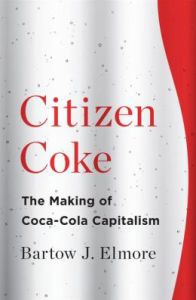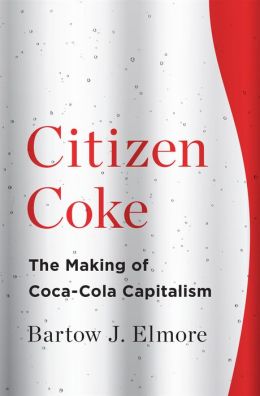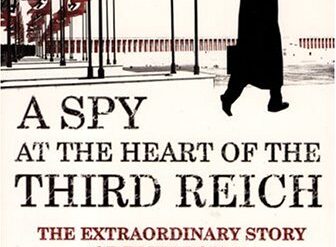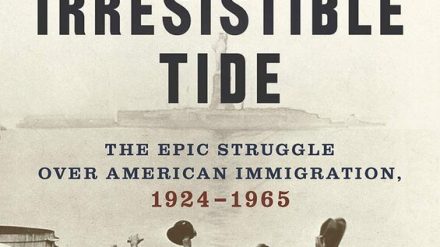
Since my fellow citizens and I here in Berkeley recently approved a tax on sweetened soft drinks despite a multi-million dollar campaign by Big Soda — by a margin of 3-to-1, of course! — I thought it might be timely to pick up the new book about the history of the Coca-Cola company, the granddaddy of the pack in Big Soda. I was expecting standard fare in business writing — a straightforward chronology of the company from its beginnings as a cocaine-laced stimulant popular in the American South to today’s universal symbol of imperialism. But that’s not what I found. Citizen Coke by Bartow J. Elmore is much more than that, and much better.
The key to appreciating this brilliant book is its subtitle, The Making of Coca-Cola Capitalism. For Elmore, the Coca-Cola Company is not just a case study in successful capitalism — for many years, its brand reigned supreme throughout the world, and it still jockeys with Apple and Google for the top spot, according to the Interbrand agency.
As Elmore puts it, Coke’s is “the most-recognized brand in human history.” In his view, the company pioneered what has emerged as the most profitable approach to business in today’s world: a lean mass-marketing machine that outsources both production and distribution of virtually all its products. “Ultimately,” he writes, “Coke’s genius, its secret formula in many ways, was staying out of the business of making stuff.” That’s Coca-Cola Capitalism.
Citizen Coke: The Making of Coca-Cola Capitalism by Bartow J. Elmore ★★★★★
Whether or not the concept of outsourcing is original with the company is immaterial. Of course, it didn’t. But Coke successfully parlayed it into an unparalleled global phenomenon. “By the mid-twentieth century, Coke was the single largest buyer of sugar in the world, the largest global consumer of processed caffeine, the biggest commercial buyer of aluminum cans and plastic bottles in the nonalcoholic beverage industry, and a major water guzzler. Here was a company with an unmatched ecological appetite for an array of natural resources. It gorged on commodities in order to make profits.”
What’s special about Citizen Coke is its inquiry into the ecological, social, and political impact of the company and its distinctive business model. That impact was substantial in every respect. Elmore emphasizes that “the main material investments that supported the growth of company bottlers flowed not from the Coca-Cola Company or from local businessmen but from city governments. The key ingredient was water: small bottlers with limited resources depended entirely on public water systems built, managed, and operated by municipalities.” And its principal domestic shipping costs were kept low by the heavily-subsidized railroads that spanned the nation.
Chapter by chapter, the nine critical ingredients of Coke’s success
Citizen Coke contains nine chapters plus an introduction and an epilogue, with each chapter focusing on one critical ingredient in Coke’s success: tap water, waste tea leaves, sugar, coca leaf extract, cocoa waste, water from abroad, coffee beans, glass, aluminum, plastic, and high-fructose corn syrup.
Today’s Coca-Cola — based on a formula that is strikingly different from the original, the company’s mythology notwithstanding — is a product that consists largely of cheap municipal water plus either sugar or high-fructose corn syrup, synthetic caffeine, and a smattering of coca leaf extract. The product is a principal source of today’s obesity epidemic, a major contributor to the glut in our cities’ landfills, and, in some parts of the world (including at least a few in the United States) the cause of ever-worsening shortages of safe, drinkable water.
Elmore wrote this book as his doctoral thesis at the University of Virginia. He was a post-doctoral fellow at UC Berkeley in 2012-13. Elmore now teaches history at the University of Alabama. He grew up drinking Coke in Atlanta, where the company is headquartered.
For related reading
This is one of My 10 favorite books about business history.
If you enjoy reading nonfiction in general, you might also enjoy:
- Science explained in 10 excellent popular books
- Great biographies I’ve reviewed: my 10 favorites
- Top 10 nonfiction books about politics
And you can always find my most popular reviews, and the most recent ones, on the Home Page.


























